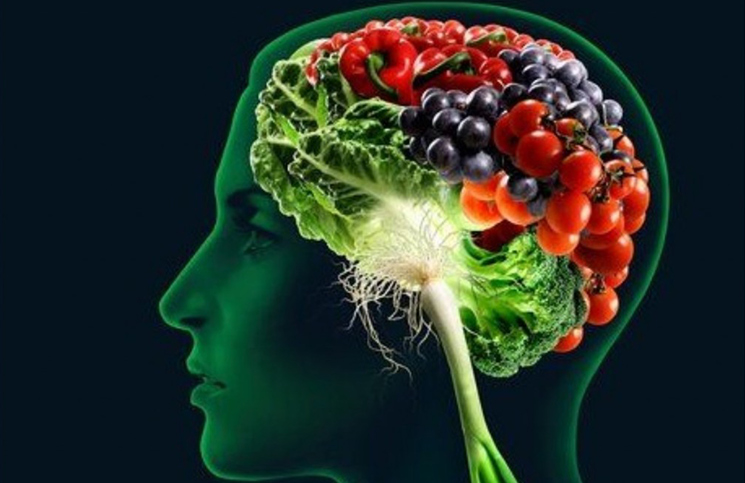Preserving and improving optimal mental health is crucial for our wellbeing. Nowadays, most people turn to medication when they want or have to improve any aspect of their overall health, and mental health is no exception. But, could there be another way to improve mental health? Can nutrition make a greater impact? Science says yes.
What does science say?
Dr. Julia Rucklidge, a nutrition researcher and a clinical psychologist at the University of Canterbury in New Zealand provided interesting evidence that nutrition is, in fact, crucial for mental health.
Dr. Rucklidge has played a pivotal role in research of nutrition and mental health for more than a decade. She has also conducted extensive research using products that are formulated by founder of Hardy Nutritionals, David Hardy. She has recently published a double blind study in the British Journal of Psychiatry which showed that consumption of Hardy’s vitamin formula showed significant improvements in adults with *ADHD (Attention Deficit Hyperactivity Disorder) comparing to placebo.
*ADHD is a medical condition that affects how well someone can sit still, focus, and pay attention. People with ADHD have differences in the parts of their brains that control attention and activity. This means that they may have trouble focusing on some tasks and subjects.
During her TED talk, which you can see below,
Dr. Rucklidge points out that nowadays a wide range of medications are available for treatment of various mental health issues. However, if these medications are really effective as they are marketed to be, why do statistics show increased number of mental health problems and diseases?
According to her findings, medications for mental health problems are only effective for a shorter period of time and they aren’t the adequate solution in the long run. Furthermore, she also mentions that micro nutrients that were tested on people with depression, schizophrenia, and bi-polar disorder showed a significant improvement that doesn’t “vanish” in the long run. Therefore, it can be safely concluded that nutrition is more effective, safer, and more affordable manner of improving mental health.
Just as healthy nutrition is crucial for the mental health and our lifestyle fitness in general, poor nutrition can contribute to aggravating the condition.
Dr. Rucklidge is currently conducting an extensive research that inspects the effect of Hardy’s vitamin formula on children with ADHD.
Scientific evidence mounts
Dr. Rucklidge isn’t the only one who provided the evidence that nutrition is more beneficial for mental health than medication. For example, a review of clinical studies conducted by T. S. Sathyanarayana Rao from Department of Psychiatry, JSS Medical College in Mysore, India had some interesting findings. For example:
- Low glycemic index (GI) foods like fruits, vegetables, whole grains etc. are more likely to provide moderate, yet lasting effects on brain chemistry, mood, and energy levels
- Deficiency of Omega 3 fatty acid is associated with heightened depression symptoms
- Consumption of Vitamin B-rich foods is linked with improved mood
- Low levels of folate are, also, connected with depression
- Iron deficiency is strongly associated with ADHD.
Results of this study were published in the Indian Journal of Psychiatry.
Foods that are beneficial for mental health
Now when you know that diet is beneficial for your mental health here are some examples of foods that you should include into the menu:
- Fatty fish – fish and seafood in general, is rich in Omega 3 fatty acids. Consumption of salmon, mackerel, sardines etc. can reduce symptoms of schizophrenia, depression ADHD and other disorders. Furthermore, it can also boost your learning, memory, and concentration.
- Lean protein – e.g. fish, turkey, chicken, beans, and eggs can relieve stress and anxiety, combat depression, and improve cognitive abilities.
- Leafy greens – are rich in folate and vitamin B complex. With the consumption of leafy greens your energy levels will improve, you’ll sleep better, and it prevents or combats depression
- Yogurt – reduces anxiety and stress hormones.
Other foods that can improve mental health and boost your brain power include:
- Whole grains
- Blueberries
- Tomatoes
- Pumpkin seeds
- Sage
- Nuts.
To boost mental health and brain power you can also opt for brain supplements. They are formulated of natural ingredients; which means they rarely induce some side effects, which is a good thing.
Video: How to Keep Your Brain Healthy As You Grow Old?
Conclusion
Although medications can help improve mental health they aren’t effective in the long run. On the other hand, healthy diet provides better and long-lasting results. Therefore, to tackle stress, anxiety, depression or other types of mental health problems and to boost cognitive abilities for optimal brain power, you should strive to make diet adjustments. Instead of unhealthy foods, opt for nutrient-rich ingredients that taste delicious and preserve your well-being.
References
http://yoganonymous.com/8-nutritional-healers-to-overcome-mental-disorders
By Margaux Diaz
Health and Fitness Expert.
She is an inspirational writer and has written numerous articles on world news headlines. Her main motive is to give information to readers through her articles and she always feels free to help people by giving them proper guidance regarding Health and Fitness. Connect with her on Facebook and Twitter

2 Responses